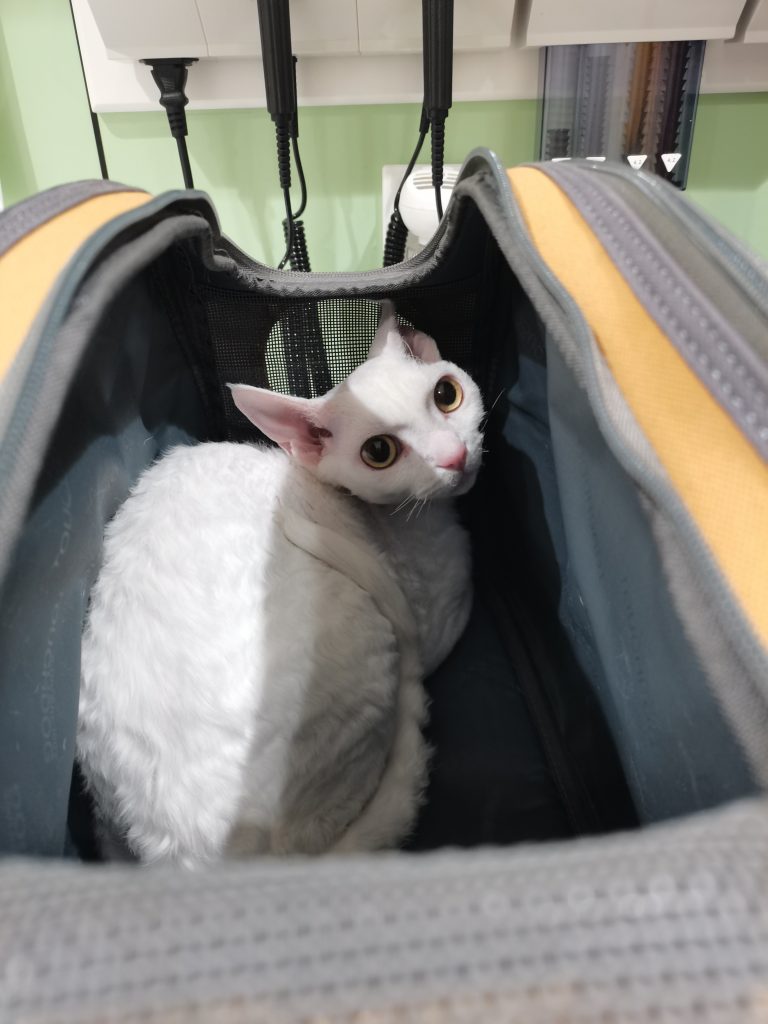The wind blew the wind chime hanging under the eaves on an early autumn morning, and Melon walked out of the little blue house made by his new owner. He began to walk around the yard, occasionally looking up and sniffing in the air. Finally, he walked towards the yard’s fence and continued sniffing along the cracks, accompanied by a low whimpering sound as if he was looking for something or waiting for someone.
A car stopped outside, and Melon barked and jumped up. Sam got out of the car. He was Melon’s previous owner and an international student studying in Sydney. The apartment he had rented expired two months ago, and he couldn’t afford the new price, so he had to move out with Melon.
“It’s hard to find suitable houses in Sydney now, and taking Melon makes it even harder. Although I promise Melon won’t damage the furniture, landlords are still worried about that,” Sam said as he stroked Melon’s head.
Sam had to share his new apartment with others and could no longer keep Melon, so he posted an adoption offer online and hoped that someone would give Melon a new home. A young couple living in the suburbs of Sydney eventually adopted Melon and was glad to let Sam visit him regularly.
“It’s been two weeks since Melon came to his new home, and the new owner told me that Melon is always anxious. Leaving me is causing him so much pain that he probably doesn’t understand why he can’t be with me anymore,” said Sam. He threw the ball and watched Melon chase it.

Sam and Melon’s situation is familiar. Many international students in Australia are away from their friends and family. Many of them choose to use their pets to relieve loneliness and anxiety. However, not all of them can always look after their pets. Most international students do not have a steady source of income or a permanent house. The illness or a move can result in a pet being abandoned or given to someone else. In addition, most international students choose to leave Australia after completing their studies, and the complicated documents and high costs involved in bringing a pet back to their country increase the risk of abandonment.
Yuki, a Chinese student at the University of New South Wales, returned to China with her cat in May. Before this, she consulted many agents, prepared the relevant documents for several months, got her cat medically examined, and got a vaccination certification.
“The process was long and exhausting, costing me almost AUD 4,500. Many of my classmates and friends have pets, but as far as I know, not everyone takes pets back to China. They prefer to give them up for adoption or sell them to someone else,” said Yuki.

Yuki’s cat is seven years old and suffers from severe gastrointestinal problems. “Cats like Snow are tough to be adopted at adoption shelters. She is a little old and sickly. People prefer to adopt younger and healthier cats,” said Yuki.
Although many organizations and individuals encourage people to adopt instead of buying a new pet, which seems like good advice, it is unsuitable for international students.
Many adoption shelters in Australia screen adopters for their eligibility, such as residential environment, breeding experience, and sufficient time. These requirements are difficult for international students who cannot provide a rental environment with outdoor space, have no experience, and do not have enough time to spend with a pet.
In this situation, many international students choose to go and buy personally bred pets, which then have to go into adoption shelters or be resold when they can no longer keep them.
Although these adoption shelters have been working hard to help abandoned pets find new homes, the massive number of pets has also put adoption shelters under pressure, and those pets that remain unadopted for long periods end up in heartbreaking situations. Nearly a million pets are estimated to be killed in shelters in Australia each year.
The relationship between international students and abandoned pets can seem like an endless cycle of Mobius Band. But is it impossible to solve this dilemma?
As an Australian animal charity, the RSPCA NSW works to protect, treat and rehome animals, including many pets. Nicole Bai is a volunteer with the RSPCA NSW and a vet. She believes that organizations such as the RSPCA can be beneficial in addressing the issue of international students abandoning their pets.
The Smart Puppy And Dog Buyer’s Guide published by the RSPCA contains a detailed list of topics to consider before buying a pet. The cost of owning a pet, the breed of pet, and the individual’s suitability and environment are all described and advised. The guide’s contents are an important reminder for international students wanting to own a pet.
“I believe they just lack some experience and ideas. For example, pet insurance helps with the high costs pets face when they get sick. They would have been aware of these situations if they had read the guide. But, unfortunately, sometimes these international students don’t prepare for it,” said Nicole.

However, when discussing international students’ inability to take their pets with them when they leave Australia, Nicole has a new idea.
“We can’t force anyone to take their pets with them. But I hope they understand that both adoption shelters and new owners can cause separation anxiety in pets, which can even kill them. Any life can feel bad about being abandoned!” said Nicole.
” Why don’t you make a more informed decision at the beginning?” said Nicole, “I know that many international students get pets to relieve their loneliness in a foreign country. I highly recommend that they volunteer at an animal shelter where they can get close to the pets and meet more friends. It’s a win-win for both the international students and the pets!”
If international students and their pets are facing or may be facing an abandonment crisis, try looking for solutions at organizations such as the RSPCA NSW, PetRescue, etc. Different volunteer positions are available, and everyone is welcome and willing to help.




Be the first to comment